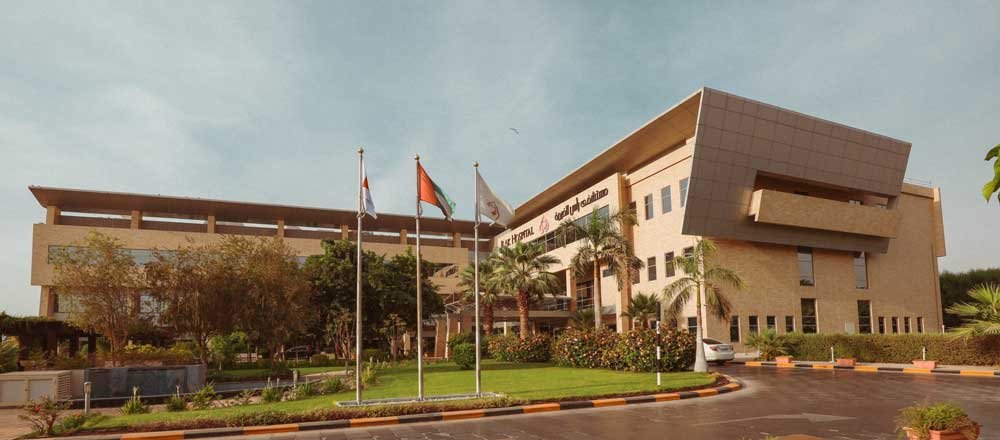
Free Genetic testing and counseling for all 20 winners of the RAK Hospital’s 2024 Weight Loss Challenge announced
Genetic testing has emerged as a promising tool to provide insights into an individual’s unique genetic predispositions related to weight regulation and metabolism, enabling personalized strategies for weight loss.
250 genes directly or indirectly influence weight gain and obesity; however, over 95% of human genes are polygenic and are epigenetically reversible
Genetic testing offers insights into genetic variants enabling personalized exercise recommendations aligned with one’s genetic profile
28 February 2024; Ras Al Khaimah, UAE – RAK Biggest Weight Loss Challenge 2024, a community initiative by RAK Hospital in collaboration with the Ministry of Health and Prevention Ras Al Khaimah, recently featured a compelling webinar shedding light on the intricate relationship between genetics and weight loss. Titled ‘Genetics: The Key to Your Unique Weight Loss Journey’, the session explored the complex interplay of genetic, environmental, and lifestyle factors contributing to obesity. The session highlighted the significant genetic component underlying weight variability among individuals, with obesity’s heritability estimated between 40-70%.
Humans have over 25,000 genes in the body, each controlling various activities. Among these, about 250 genes directly or indirectly influence weight gain and obesity. Genetically, obesigenic genes manifest in both monogenic and polygenic forms. The 5-6 monogenic genes are difficult to manage except medically; however, over 95% of human genes are polygenic and are epigenetically reversible by medical, environmental, and lifestyle factors, including moderation in diet, exercise activity, pharmaceutical, and surgical interventions.
Distinguishing between syndromic and non-syndromic forms of obesity, including identifying monogenic and polygenic genes, is crucial for appropriate management and tailored interventions to address the underlying causes and associated health complications of obesity.
The session emphasized that genetic variations in humans not only play a significant role in determining an individual’s susceptibility to obesity but also dictate each individual’s response to weight loss interventions. Numerous genes have been implicated in regulating appetite, metabolism, fat storage, and energy expenditure, influencing an individual’s predisposition to weight gain or obesity.
Variations in genes related to hormone regulation (e.g., leptin, ghrelin), metabolism (e.g., insulin, adiponectin), fat storage (e.g., FTO, MC4R), can impact an individual’s ability to maintain a healthy weight and can also provide guidance to tailor customized weight loss plans.
Addressing obesity requires personalized approaches that consider individual differences in genetic makeup, metabolism, and response to dietary and lifestyle interventions. Genetic testing has emerged as a promising tool to provide insights into an individual’s unique genetic predispositions related to weight regulation and metabolism, enabling personalized strategies for weight loss and obesity prevention.
By analyzing genetic variants associated with metabolism, appetite regulation, fat storage, and other relevant factors, genetic testing can identify personalized recommendations tailored to an individual’s genetic profile. For example, individuals with genetic variations associated with enhanced weight loss with high protein diet may benefit from dietary strategies that emphasize increasing the proportion of healthy and lean sources of protein in their plan.
“Genetic testing also offers insights into genetic variants associated with exercise adherence, muscle composition, endurance, and individual responses to exercise, enabling personalized exercise recommendations aligned with one’s genetic profile.
Additionally, it can indicate whether an individual possesses a moderate or low propensity for weight loss through exercise, allowing for targeted dietary interventions to complement weight loss efforts, rather than relying solely on physical activity. Genetic testing results can also empower individuals with personalized insights into their genetic predispositions, motivating behavior change and adherence to weight loss interventions. By addressing underlying genetic factors contributing to weight gain, personalized interventions based on genetic testing may improve the long-term efficacy and sustainability of weight loss efforts”, commented Dr Raza Siddiqui, Executive Director, RAK Hospital.
The session emphasized the potential of genetic testing to empower individuals on personalized weight loss journeys, thereby advancing efforts against obesity. As part of this initiative, genetic testing and counseling for all 20 winners of the RAK Hospital’s Weight Loss Challenge, concluding in March 2024, was announced.


